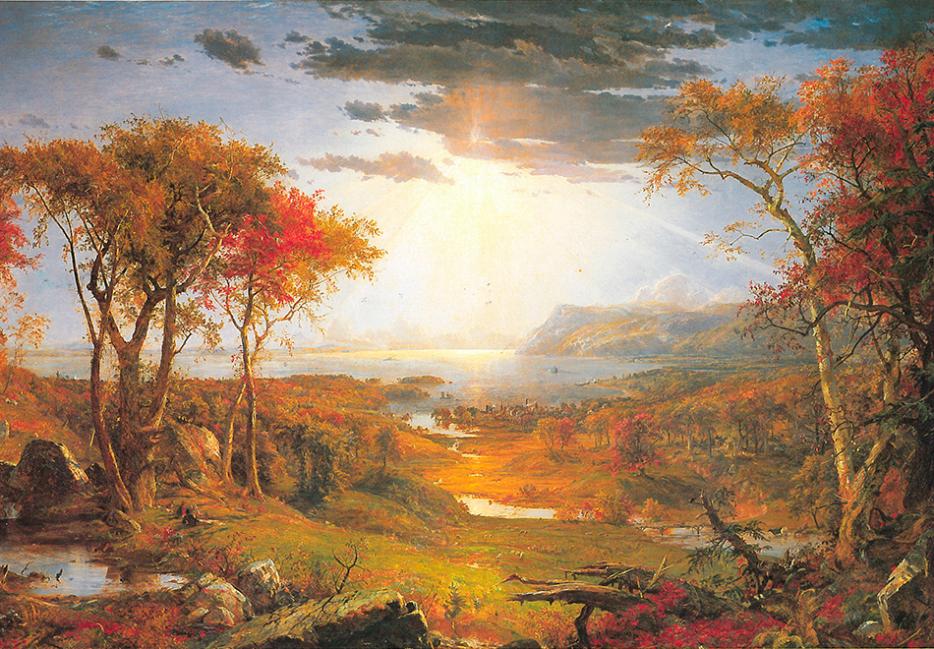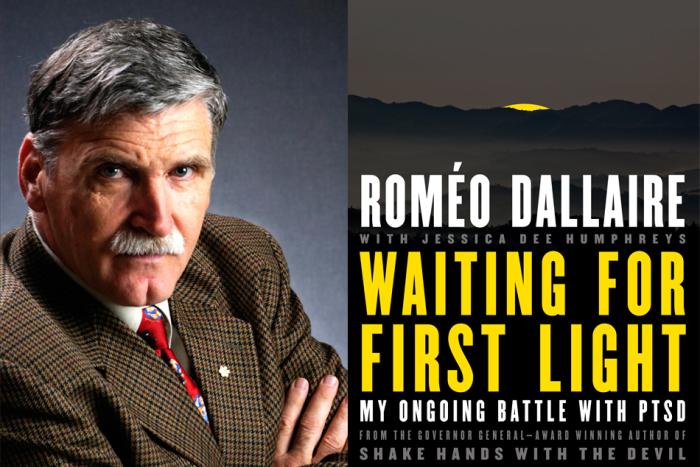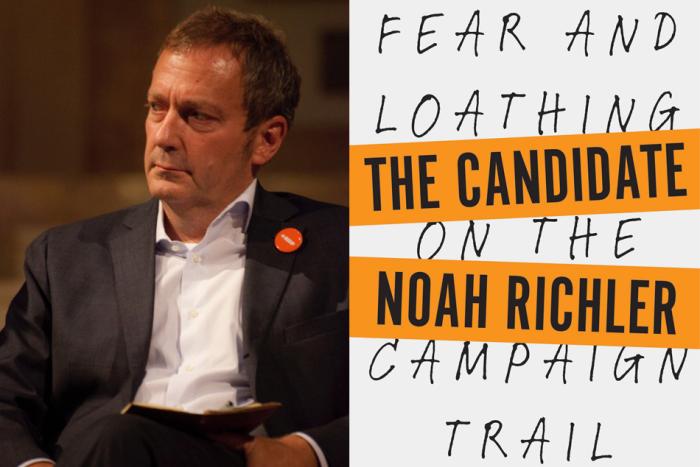My first camping trip as an adult almost didn’t happen for a number of reasons—a postponement after a long series of false starts, cancelled plans, general hesitation. I was out picking up some last-minute supplies in my neighborhood when I went to the local branch of my bank to get some cash out of an ATM, which went according to plan right up until the point when it ate my card. This was the second time in two months this had happened; if I am the Charlie Brown of this story, this ATM is some modern-day variant of the Kite-Eating Tree, inconveniencing random passers-by with the diabolical poise of an inanimate object. Resolute, I adjusted my schedule, figured out the best way to get my gear to Grand Central Terminal, and off I went. At a little after 4 p.m., the train I was on pulled into the station at Beacon, New York, and my trip into the woods had begun.
*
My only previous proper camping experience came in childhood, 1984 or ’85, when I traveled with my dad, my uncle, and one of my cousins to Eastern Pennsylvania, where we camped for a night or two and watched auto racing at the Pocono Raceway. There wasn’t much to remember: besides marveling at what a beer can looked like the morning after being left to melt in a campfire, the enduring memory of the trip is my cousin talking about the then-recently released Ghostbusters. (I had not yet seen it.) Though there were some other trips into the wilderness, they were larger in scale, as part of a father-son YMCA group that traveled to campgrounds but generally stayed in more lodgelike structures. At least I remember them as lodgelike—those memories are around thirty years old by now.
I didn’t do much camping after that. One trip I had planned to go on as part of a group—I think this was during my brief and ill-fated foray into Scouting—was cancelled due to bad weather. In my formative years, I spent most of my spare time reading, had no real interest in going outside, and was more or less a nerdy vampire who wore sweatpants for far too much of his childhood. Then I grew up and moved to New York, which is not exactly a camping-friendly city. While there are plenty of campgrounds north, south, and west of the city, most are inaccessible without a car, and factoring in the cost of a rental for multiple nights can make the cost of camping higher than just hopping on a plane and going on an actual vacation.
Still, a number of friends—friends I trust, friends who generally seem to have their lives a little more figured out than I do—swear by camping. The balance aspect of it was appealing to me, as was the perennial question that hangs over all attempts to try out things unattempted in adult life: can I actually do this? There are certain experiences that, if gone untried, will not leave me feeling bereft when I’m on my deathbed—skydiving, for one. But I see pictures of friends’ trips into the woods, vistas and parts of the world not easily accessible by public transit, and I start to understand the appeal. A short trip into the woods, then—an attempt to see what camping was all about. It was a day without rain just before the start of fall. It seemed like a good time to head into nature.
*
I decided on a place called Malouf’s Mountain, located a little over an hour north of the city, that ran a shuttle between the train station and the trail leading to the campground. It didn’t hurt that the train ride up the Hudson River is maddeningly scenic, though it did have the effect of getting Mercury Rev’s song “Hudson Line” stuck in my head for hours. This was not the first time on this trip that I would find myself with a song incessantly stuck in my head, nor would it be the last.
The shuttle dropped me off at the base of a trail, and I received some basic directions on how to reach my destination: follow the trail with red markers up, veer left when I came to a landmark, and follow the trail with white markers when I got to it. Yes, I thought. I could definitely do this. Then I started to walk uphill. Despite opting for the shortest route—anything else would have involved getting to the campsite within an hour of sunset, which seemed a bad idea—I hadn’t quite realized how much of it would be uphill. The ATM mishap had led me to take the shortest route in over the one I’d originally planned, which would have been a hike of two and a half hours. That, I realized, may have still been the wiser choice.
In middle school, a friend of mine once referred to me as a “sweaty behemoth.” I was once asked if I believed that my perspiration was excessive due to a medical condition. This is to say: I sweat a lot, a situation heightened by my general aversion to wearing shorts anywhere other than to the gym since sometime in my early twenties. I think my shirt was thoroughly soaked by the time I had gotten a third of the way up the trail. (This would also be the case for the trip back, in which I was the sweaty guy on the train returning home, possibly smelling a little odd—I had thought to pack some extra shirts, but not quite enough. It was not my proudest moment.)
It took the better part of an hour before I did anything more severe than singe the edge of some crumpled newspaper, decimating what seemed like hundreds of matches along the way. At one point, I looked down at the firewood below me and saw an ant walking along its surface. Clearly, it felt that it was in no danger.
I had borrowed some trail maps from friends who camp with some regularity. As I made my way uphill via the red trail, I was aware of my relative solitude; I took in toppled trees and the small white flowers that grew by the edge of the trail. I kept my eyes out for signs of animals, but saw nothing except for a grey squirrel hurrying on its way. Earlier in the day, I had decided to wear a pair of Thorogood boots, and I felt acutely aware of my footing. The trail was steep in places, and I could only imagine what the longer routes were like. This was the most strenuous activity I’d had in weeks, and I feared stumbling, feared some injury, feared having to call the campground to report that something had gone wrong, that I was stranded.
I continued along the red trail until it bifurcated, my nervousness increasing. I kept checking the trail maps, but given that I was traveling along a curved path—the campground’s owner had referred to it as a “loop” when he dropped me off—my exact position wasn’t clear, and I worried I was going the wrong way. Eventually, I broke down and purchased a PDF version on my phone to confirm that I was, in fact, going the correct way. Within another fifty feet, of course, I saw a sign on the trail telling me to turn left to reach the campground. This was not, perhaps, the most practical use of $3.99 I’d ever made.
*
I brought two duffel bags with me, along with a cooler and a tote bag for some odds and ends. Inside the bags were my tent, pillow, change of clothes, sleeping bag, and a small mat to go below my sleeping bag. Other than my clothes, the only item I’d owned prior to the trip was the sleeping bag, which I’d purchased more recently for a planned stay at Truck-A-Float, a kind of floating hotel in the Rockaways where I’d booked myself a night’s stay to celebrate my thirty-eighth birthday a few years ago. I ended up scuttling those plans when an urgent freelance deadline crept up, but I hung on to the sleeping bag, figuring that some opportunity to use it would arise.
Upon arrival, I noticed that the campsites were relatively isolated, arranged along two trails on an incline. Rather than a more barebones plot, I had opted for one with a shelter: a roof and a wooden platform, a picnic table on which I left my bags, a covering for the fire, and a gas connection that powered a stove and a lamp. I unpacked my gear and remembered what the friends from whom I’d borrowed the tent and cooler had advised: start with the basics—assemble the tent and build a fire before anything else. Certainly, I thought. I have matches and firewood and kindling and newspaper. How hard can this be?
It took the better part of an hour before I did anything more severe than singe the edge of some crumpled newspaper, decimating what seemed like hundreds of matches along the way. At one point, I looked down at the firewood below me and saw an ant walking along its surface. Clearly, it felt that it was in no danger, despite the looming behemoth standing there, attempting to ignite the object on which it stood. My basic outdoor skills seemed in doubt.
At some point, part of my brain decided to start up an infinite loop of Tori Amos’s “Precious Things.” And not even the entire song; just the end, about three and a half minutes in, when an increasingly agitated Amos makes use of her entire vocal range to sing the line “let them wash away from me.” Listening to the song now, it’s interesting to me how the piano melody has a decidedly John Carpenter soundtrack tension to it; remove the vocals and you’d have the ideal music for a late-’80s horror film. My subconscious has a puckish quality.
After the discomfort I felt climbing the hill, I was all too conscious of the lack of activity that generally comes with writing all day; it also seemed ridiculous that it had taken me to the point of pushing forty to pull off something as simple as camping.
Finally, the fire caught. The smell of burning wood began to rise from out of the fire pit, and I felt very satisfied with myself. I ignited the lantern inside the shelter near my bags and got my flashlight and my headlamp out and at the ready. I also started preparing the components of the tent for assembly. It was a dome tent, and I put together the frame as best I could, but from there, I couldn’t suss out exactly how the “X” I’d assembled would come together with the cloth parts still on the platform to create habitation. Something seemed off, though, so I hesitated. I chalked it up to a sensation with which I’d become familiar after a few years of writing full-time: the haziness of focus and the penchant for distraction that accompanied hunger. I’d take care of building the tent after dinner, I told myself. I’d have a clearer head then.
*
Dinner was a couple of sausages and—also at a friend’s recommendation—a potato, sliced up and covered in olive oil, salt, and pepper, and then wrapped in aluminum foil. I lowered a grill over the flames and rested the sausages on top of it, and placed the foil-wrapped potatoes in one corner of the fire pit. As I took my hands away, I noticed that some of the oil/salt/pepper blend had gotten on them and smelled quite delightful. This, I thought, was an excellent sign of the meal to come.
The sausages cooked up fine, but the potatoes didn’t fare quite as well. I retrieved them from and then returned them to the corner of the fire for further cooking after removing one of the two layers of aluminum foil I’d wrapped them in. The second layer, it turned out, had a few holes in it, causing some of the olive oil to drip down closer to the flames. This was about when I pulled my hand way the hell back, because the olive oil was catching on fire, igniting the foil and the potato slices within. I salvaged about half of them; the rest went to the fire. The remains were delicious.
As the potatoes caught fire, another song got stuck in my head, this one was a little more appropriate to the situation. It came from a record I’d listened to frequently when it first came out: The Lemonheads’ 1996 album Come On Feel The Lemonheads. The song was called “The Outdoor Type,” and it’s about a guy who confesses that he is in no way cut out for a certain way of life in which he’d feigned interest for reasons of romance. “I always had a roof above me, I always paid the rent / And I've never set foot inside a tent / I couldn't build a fire to save my life / I lied about being the outdoor type.”
It hit a little close to home.
*
Later on, I roasted some marshmallows, hearkening back to trips I’d made with my dad growing up. It lent the trip a hint of nostalgia, while also making me deeply aware of the present moment—of my body, my age, my current solitude. After the discomfort I felt climbing the hill, I was all too conscious of the lack of activity that generally comes with writing all day; it also seemed ridiculous that it had taken me to the point of pushing forty to pull off something as simple as camping. As for the solitude, our relationship is complex: I’m an only child who lives alone and is frequently single, and so I spend a lot of time inside my own head. At the same time, I live in a large city; it’s easy enough to see other people, easy enough to socialize. Here, though, I knew I didn’t have the recourse to wander down to a coffee shop or bar for instant human contact. Here, there were lights in the distance, the sound of occasional airplanes overhead, and little else.
I felt the passage of time much more acutely at the campsite. When I’m at home, 7:55 feels early; 7:55 feels like the night still holds plenty to offer. On the side of the mountain, 7:55 felt incredibly late; the only lights around me were the fire and the kerosene lamp in the shelter. I had brought a small flashlight and a headlamp, which I looked ridiculous wearing but found incredibly effective for getting tasks done as the night went on.
The night proceeded quietly. Periodically, I left the shelter to roast some more marshmallows. I made some more gestures in the direction of assembling the tent, but did not actually assemble the tent, opting instead to sit below the kerosene lamp and read a collection of Robert Aickman stories, because reading unsettling fiction with a mounting sense of dread seemed entirely appropriate for a night spent alone in the woods. It was when I took a break from the book and approached the fire, holding a marshmallow on a stick, that, from about five feet away, came a kind of unearthly hissing.
I shuffled back onto the platform beside the picnic table; I had no idea what the hell it was. My first thought was a possum; my second thought was that as long as I didn’t prompt whatever it was to make noise, I’d be all right. I was correct on the second assumption, but not so on the first—a while later, the campground’s owner, accompanied by his dog, swung by on an ATV to check in on me before heading home. While we stood there talking about the campground’s history and its layout, how the summer had gone, and about the region in which it’s located, we heard the sound again. Owls, he told me. We paused in our conversation and listened—there were calls coming from a few different directions. It wasn’t clear if this was all one owl moving from tree to tree or if there were several surrounding us. The woods were dark, and the owls gave little hint as to their number. The owner’s dog stepped between the owl sounds and my body, presumably to protect me in case they decided to swoop in my direction. This warmed my heart more than it’s possible to convey using words.
Eventually, the owner headed home. The owls moved on to terrify people elsewhere, and I returned to the platform. It was close to ten at this point, and I had still not assembled the tent.
*
I piled on the rest of the firewood to keep it burning a little while longer and gave the tent one last, unsuccessful shot. I eyed the pieces of the frame and still could make neither heads nor tails of it. While I had a full stomach, I’d also had some beer, and between that and the darkening sky, I found it difficult to work up much motivation to actually assemble it. At this point, assembling the tent no longer seemed necessary. I decided I’d be fine sleeping out on my sleeping bag and the small mat that I’d brought. The temperature was still relatively warm, and the presence of harmful wildlife seemed negligible. I read a little more of the Aickman collection and watched the fire dwindle. Before long, I set the book down and walked over and poured water on the embers that remained and watched tufts of smoke rise.
I lay down inside the sleeping bag and put a pillow under my head and waited for sleep to come. Instead, I became aware of everything around me: the night sky and the sounds coming from the woods, a legion of things chirping in their own rhythm. I’m not used to silence. The house in which I grew up wasn’t far from the Garden State Parkway, and so the sound of cars in the distance was a constant whenever I lay in my childhood bed with the windows open. I went to college in a city and I live in that same city; I find the idea of sleeping in silence unsettling. But the situation in which I found myself was less one of white noise or a constant drone than of something surrounding me that was very much alive. Still I lay there, eyes closed, hoping for consciousness to abate.
I know, on some level, that I did sleep, but my sleeplessness felt uninterrupted. It felt like falling asleep while a passenger in some vessel. Sometimes I would stand and walk over to the chair on the platform, sleeping bag wrapped around me like someone saved from drowning. I’d sit there and listen to the sounds around me and try to drift off again.
I had big thoughts when I lay there: life and death and reality and the cosmic. I guess that’s what you do when you lie awake with the stars in view and the deep smell of pine and the woods chirruping around you. Sometime in the night I again heard the sound of a plane overhead. This wasn’t a shock; Stewart Airport wasn’t too far away. But it was a sign that a new day was beginning. I saw a lightness in the sky, and rolled over on my side and wished I’d brought a thicker mat. I became more aware of my sleep at this point. I would turn and open my eyes and notice that the sky was a slightly brighter shade of dark blue after each period. Eventually, I woke with the dawn.
*
I showered and cooked breakfast: a bacon, egg, and cheese sandwich that may well have been the least nutritious thing I've eaten this year—I cooked everything in butter, and the bacon strips were huge—as well as one of the most delicious. I packed up my things and readied myself for the hike back to the end of the trail. The train back from Beacon was crowded: a few people heading in late to work and a few groups on their way to the city. I read more weird fiction and thought about the things I’d do differently on my next trip into the woods, still not feeling like the outdoor type, but having a sense of a version of myself that might be one day. Stress brought no songs on endless loop in my brain; there was only the sound of the train as it went, and the view of the mountain to one side of me and the Hudson River to the other. It felt like moving forward.






